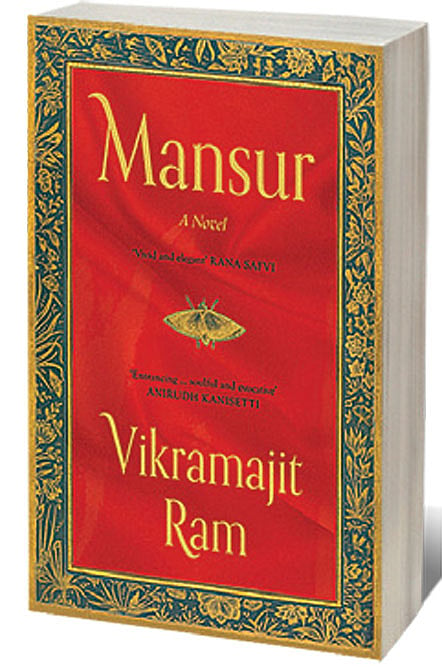A Portrait of Intrigue

THE DODO—THAT dumpy, short-winged, ungainly bird now synonymous in the English language with being dead and gone—was first sighted and described by Europeans sometime in the early 1500s; over the following century, many painters depicted the bird. Most of the paintings are distorted, the dodo’s centre of gravity obviously awry.
An Indian, however, was responsible for what is probably the most accurate depiction of a dodo: Ustad Mansur, of Jahangir’s imperial atelier, painted the bird around 1623 CE. Jahangir, deeply interested in natural history, had agents stationed in Goa to check every ship that sailed in: they had instructions to acquire exotic creatures being brought to India, and to have these sent on to the Emperor. Who, of course, would not only add them to his menagerie, but have them painted by Mansur.
Thus we have Mansur, painting the dodo.
Which is how Vikramajit Ram’s Mansur: A Novel begins: with Mansur painting the dodo. “It stands in a wash of light green under a hint of watery sky, a tussock of darker grass in the foreground for scale. As in life, so in the painting, there’s a canny smile to its heavy hooked bill, a jaunty step to its ochre-grey feet.”
Mansur toils over the painting, while fretting over a very private assignment he has been working on these past months. From the room where Mansur works, the narrative moves out, to the other rooms of the imperial atelier. To where a talented young trainee draughtsman, Mirar, fascinated by his handsome tutor, Abul Hasan, finds himself torn between jealousy and ambition, between pride and devotion to his Beloved. To others: the master portraitist, Bichitr, eager to get ahead, frantic to be taken along to Kashmir as part of the Emperor’s entourage. Higher up in the echelons of the atelier and the library is Muktab Khan, the Keeper of Paintings; and in a world both distant as well as connected to the atelier are the two old ladies, Sahifeh Banu and Nadireh Banu, who dwell in the Women’s Quarters of the palace and whose Abyssinian page, Jamal, ferries mysterious packages between the ladies and Mansur.
AIming High
20 Feb 2026 - Vol 04 | Issue 59
India joins the Artificial Intelligence revolution with gusto
The chapters of Mansur have titles that, even if not exactly those of paintings, could well be: ‘Flightless bird with heavy hooked bill’, is the first chapter; ‘A youth woos his Beloved with fine drawings’ the next, and so on. It’s an appropriate way to define this book, because Mansur’s core strength is its depiction of art, both Mansur’s and that of his contemporaries. Ram describes the paintings in loving detail, bringing out their nuances, working into their descriptions a knowledge of not just the way art is created, but how the creator of that art is reflected in the work too.
This aspect of art—how it is affected by the painter and other considerations—forms an important part of the story. The characters are all in some way involved with the creation of art, even if they are not artists themselves. Their motivations, their ambitions and rivalries play out against the backdrop of the atelier and the imperial family it serves.
The book, at a little over 150 pages, is slim, the story brief. The characters are many, flitting in and out of frames, often only briefly glimpsed before the scene shifts. Their dialogues, sometimes whimsical or witty, are occasionally obtuse. The combination of too many characters and too brief a book ends up being underwhelming: a reader may be left with a fleeting, half-formed impression of a story of greed, jealousy, power and ambition in the imperial atelier. Not an impactful, strong story, but one that seems to be perceived through a shifting veil: broad brushstrokes prevail here, rather than the finer details.
But Ram’s exquisite prose is a pleasure to read, and he does a fine job of transporting a reader into another space, another time.

